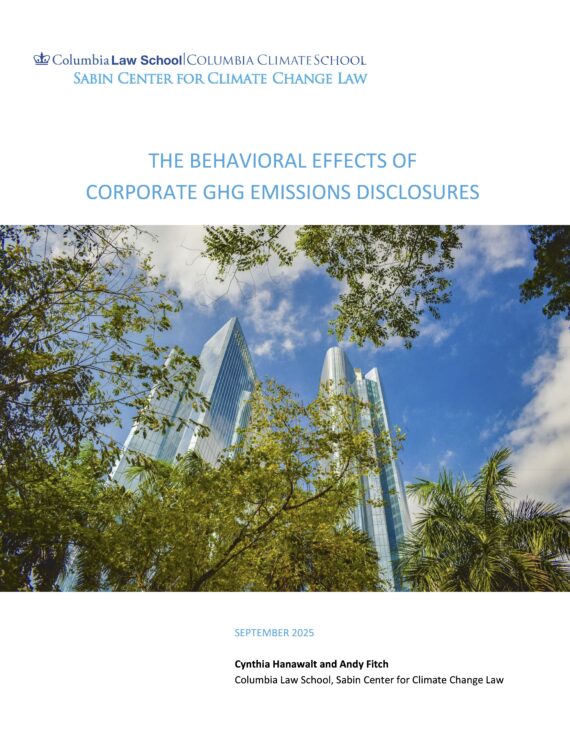Texas v. BlackRock (E.D. Tex.) (BlackRock), a case in which 13 states claim that the institutional-investor defendants colluded to profit through coordinated output reductions at coal companies they partially owned, remains in its early stages, with discovery continuing through 2027. Already however, opponents of climate-risk mitigation have rushed to extract […]
Climate Finance
A now-familiar playbook for climate-denying state attorneys general is to launch burdensome investigations of climate-minded corporate enterprises based on inchoate antitrust claims (often conspicuously lacking a profit motive for the alleged antitrust violations). These enforcement tactics crystallize two challenges for corporate climate initiatives seeking to steer clear of antitrust liability. […]
Climate alliances have become a common target of antitrust campaigns over the last several years, particularly given the complex market dynamics for these alliances to navigate, with effective industry-wide transformation often necessitating some degree of coordination among competitors. In previous blog posts, we have addressed state legislatures’ efforts to undermine […]
Corporate climate disclosure rules are under development in several jurisdictions, with California and the European Union (EU) leading the way. A controversial and unresolved matter in this area is the inclusion and measurement of Scope 3 emissions—i.e., indirect emissions from a company’s supply chain. This blog post—the second in […]
The Securities and Exchange Commission (SEC) rule on climate disclosures for investors still faces an uncertain future in the courts. Meanwhile, other jurisdictions are filling the void. On October 10, the California Air Resources Board (CARB) released draft reporting templates for corporate emissions disclosures required under state law. This […]
This blog is the third in a three-part series on sustainable finance metrics that better evaluate corporate climate risk, opportunity, and impact, and make metrics more relevant to financial decision-making. The first two blogs analyze the value of CapEx and energy transition ratios as key transition metrics. At the […]
In recent years, roughly 30 nations have implemented regulatory regimes that mandate some type of greenhouse gas (GHG) emissions disclosure from corporations. As GHG emissions disclosure regimes continue to take hold, several key questions arise: will they prompt meaningful and sustained GHG emissions reductions, or will they merely serve to […]
This blog is the second in a three-part series on sustainable finance metrics that better evaluate corporate climate risk, opportunity, and impact, and make metrics more relevant to financial decision-making. In the last decade, financial market participants have begun to grapple with the risk and opportunity posed by […]








